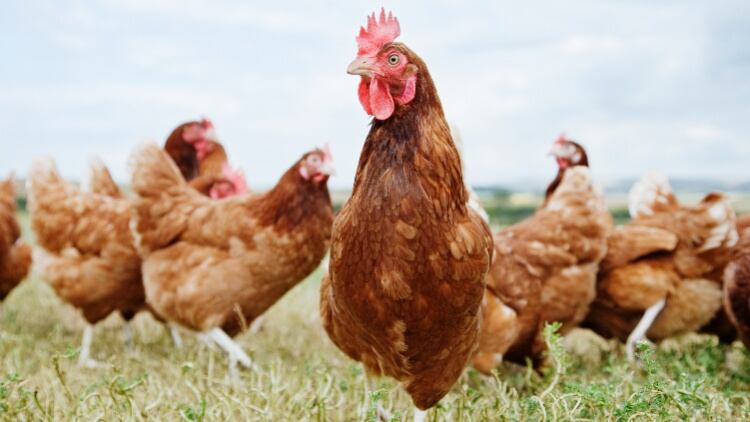The animal welfare organisation said in its report ‘Bird flu: Only major farm reforms can end it’, published on 22 August 2023, that the necessary changes it has set out would help reduce the risk of a global human pandemic.
With support from the Scientific Task Force on Avian Influenza, Compassion in World Farming claimed that wild birds are typically victims of the bird flu rather than its cause, with the rise of factory farming the main reason behind the disease's spread.
The report urges governments to implement a three-point action plan which includes: mass vaccination to slow the spread of bird flu; the radical restructuring of the poultry industry to adopt smaller flocks and avoid clusters of poultry farms; and changing the way pigs are farmed to prevent the creation of new pig, bird and human viruses. The NGO has written to the UK and US governments, as well as others across Europe, calling on them to introduce this plan.
More than half a billion farmed birds have died or been culled globally due to bird flu since 2021, while thousands of wild birds have died. Humans can also be infected, with 875 cases registered since 2003.
‘Urgent action needed’
Report author and chief policy adviser at Compassion in World Farming, Peter Stevenson, said: “Unless we wake up and take urgent action to end factory farming, we will simply be unable to stop [bird flu’s] rapid spread across the globe or reduce the risk of a serious human pandemic developing.
“Cramming animals together in factory farms is not only totally inhumane, it’s creating the perfect place for bird flu and other viruses to spread and mutate into more dangerous strains.”
Professor Devi Sridhar, chair of global public health at the University of Edinburgh, added: “The more chances the virus has to jump into a human and mutate, the more likely it is a dangerous strain will emerge that could set off the next pandemic.”
In July 2023, the Food and Agriculture Organization (FAO), the World Organisation for Animal Health (WOAH) and the World Health Organization (WHO) issued a statement that said: “Avian influenza viruses normally spread among birds, but the increasing number of H5N1 avian influenza detections among mammals—which are biologically closer to humans than birds are—raises concern that the virus might adapt to infect humans more easily.”
Commercial poultry flocks ‘not to blame’
However, British Egg Industry Council (BEIC) chief executive Mark Williams disagreed with the report’s findings.
“The report demonstrates a clear misunderstanding of how avian influenza (AI) has been spread, which is disappointing,” said Williams.
“In Europe, bird flu was spread by infected wild birds returning from their summer breeding grounds, and not by commercial poultry flocks. At present, the most important tool we have to combat the threat of AI is biosecurity, irrespective of flock size or system of production.
“As joint-chair of the joint industry/government AI vaccination taskforce, we are working with government to develop a UK-wide AI vaccination strategy, which includes the need to obviate potential hurdles and find solutions. The BEIC is fully focused on finding a cost-effective vaccination solution against HPAI. Even when that is available, strict biosecurity measures will always remain the key defence against HPAI.”
In other news, strikes at Tetley Tea are off after a pay deal was reached between the employees and management.





